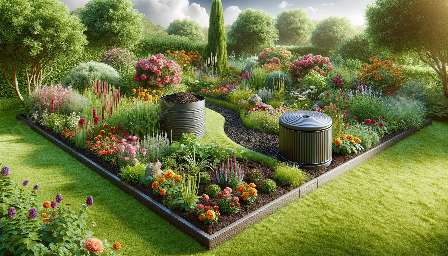Composting and weed control are essential practices in gardening and landscaping, providing numerous benefits for soil health, plant growth, and environmental sustainability.
Composting: Nurturing the Soil
Composting is the natural process of recycling organic materials, such as kitchen scraps, yard waste, and plant debris, into a nutrient-rich soil amendment. It involves the decomposition of organic matter by microorganisms, resulting in a humus-like substance called compost. Compost is teeming with beneficial microorganisms, which improve soil structure, enhance water retention, and promote overall soil fertility.
Benefits of Composting:
- Enriches Soil: Compost provides essential nutrients, such as nitrogen, phosphorus, and potassium, vital for plant growth.
- Improves Soil Structure: Compost enhances soil texture, allowing better aeration and water infiltration.
- Suppresses Soil-Borne Diseases: The beneficial microbes in compost can help suppress harmful pathogens and diseases in the soil.
- Reduces Waste: Composting diverts organic waste from landfills, minimizing environmental impact.
Composting Techniques:
There are various composting methods, including traditional bin composting, vermicomposting with worms, and hot composting. Each method offers its unique advantages, enabling gardeners to efficiently recycle organic materials into valuable soil amendments.
Weed Control: Managing Unwanted Growth
Weeds are persistent, unwanted plants that compete with desirable plants for water, nutrients, and sunlight. Effective weed control is vital for maintaining a healthy garden and a well-manicured landscape. Composting plays a crucial role in organic weed management, offering sustainable solutions to suppress and control weeds without the use of harmful chemicals.
Composting for Weed Control:
When compost is incorporated into the soil, it promotes a healthier and more balanced ecosystem, creating conditions that discourage weed growth. Additionally, compost introduces beneficial microorganisms and fungi that can outcompete weed seeds and suppress their germination, reducing the overall weed population.
Organic Mulching:
Applying compost as a natural mulch helps smother weeds by blocking sunlight and inhibiting their growth. As the compost mulch breaks down, it adds nutrients to the soil, further enhancing plant health.
Companion Planting:
Integrating compost-amended soil with companion plants that naturally deter weeds can create a harmonious and weed-resistant garden environment. Certain plants, such as marigolds and chrysanthemums, release natural compounds that repel or inhibit weed growth, complementing the effects of composting.
Improving Gardening and Landscaping with Composting and Weed Control
Combining composting with effective weed control methods not only fosters a flourishing garden and landscape but also contributes to sustainable environmental practices. By reducing reliance on synthetic fertilizers and herbicides, gardeners and landscapers can minimize their ecological footprint and cultivate resilient, biodiverse ecosystems.
Composting and weed control are integral components of sustainable gardening and landscaping, offering multifaceted benefits for soil health, plant vitality, and environmental stewardship.















































